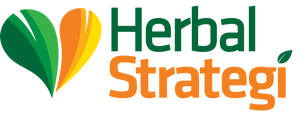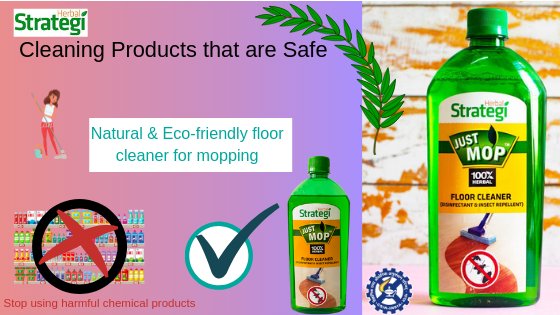Want to tidy up your house and are wondering how you will be able to do it with your allergies flaring up? You will now have many options! Many commercial products contain massive amounts of chemicals that can not only damage surfaces but can also create many issues for the person using them, especially upon long-term exposure. Causing risk to your health and well-being while trying to clean your house is just like creating one problem while trying to solve another! Break this counterproductive cycle and ensure that you are now keeping your home spick and span with cleaning products that are made out of 100% natural products.
Content Table
Common Ingredients That Can Make Allergies Worse
Many home cleaning agents can end up triggering your allergies. If you notice the presence of these toxins in the products that you are using or thinking of purchasing, you might need to rethink or test for allergies before you buy them in bulk
Ammonia
Ammonia or ammonium hydroxide is common in products like window or toilet cleaners. It has a powerful property that makes it a good disinfectant as it can cut through grease and creates no streaks while cleaning. In small traces, ammonia will not cause severe problems, however, as the concentration increases, it can get toxic. If contact with skin or eyes, it can lead to severe burns or permanent eye damage. The fumes produced by ammonia can be irritating and can increase the risk of developing asthma.
Bleach
Bleach is common in house cleaning products. Read the labels carefully and if you find sodium hypochlorite, which is an active ingredient in chlorine bleach, it can cause serious burns in case it comes into direct contact with your eyes, skin, etc. Bleach is also associated with an increased risk of certain types of asthma and other symptoms that mimic asthma such as chronic coughing.
Formaldehyde
This is a disinfectant and preservative that is often found in a wide range of products like - baby powder, makeup, dishwashing liquid, etc. Many of these products only contain a small amount of formaldehyde and they do not cause reactions. However, long-term exposure to formaldehyde is linked to eye and lung irritation and skin allergies. It has also been listed as a carcinogen. This chemical is also known by other names like methyl aldehyde and methylene oxide.
Sodium Laureth Sulfate
While the name is not common, you will have come across this chemical in one form or the other. It is a detergent used in cosmetics and is also a foaming agent that is used in soaps, cleaning agents, etc. For people with skin allergies like eczema, allergies can be aggravated by these sulfates. Therefore, it should be avoided by people with sensitive skin
D-limonene
This is one of the major components of citrus oils like lemon, lime, orange, etc. It can be used in products for cleaning as a fragrant agent. It may be considered generally safe to use however, for people with skin allergies, it can increase the risk of developing asthma. Pay attention to this ingredient in case of allergies.
Triclosan
This is an anti-microbial (germ-killing) agent that was used in soap products until it was banned by the FDA in 2016. It can be found in relatively high concentrations of toothpaste, hand sanitizer, and some laundry detergents. Triclosan is linked to an increased risk of asthma and hay fever. People without allergies may also be recommended to avoid triclosan because it is associated with other health issues like reproductive and thyroid problems.
Read More: Different Types Of Cleaning Products used for house cleaning
Eco-Friendly Alternatives to Use for Home Cleaning
In case you have allergies, health issues, asthma, sensitive skin, etc you may want to steer clear of hardened chemically-induced cleaning products. Finding ones that are deemed safe by healthcare organizations or government bodies would be the safer choice. It might be a good idea to avoid products with dyes and fragrances and also aerosolized sprays.
There is a difference between cleaning and disinfecting. Some natural cleaning options would be plain soap and water, vinegar, baking soda, lemon juice, etc. These may clean your space of any allergic aspects but may not disinfect
Here are some of the alternative options that you can use for cleaning your house:
Baking Soda
Baking soda is a good cleaner and deodorizer. It can be paired with vinegar to clean clogs. You can also mix them with natural soaps to soften water and increase foam in the cleaning
Borax
It is one of the most common ingredients in grocery and department stores. It is a powerful disinfectant and can soften the water to increase soap suds. Ideal for cleaning walls and wallpapers without the risk of damage, borax is perfect for stuck-on dirt and grime from floors
Washing Soda
Washing soda is wonderful to cut grease from kitchenware and removing stains from clothes and surfaces. It is also a disinfectant and is ideal for cleaning sinks, tubs, bathroom tiles, etc. Do not use this on aluminum surfaces.
Cornstarch
This can be used as an excellent alternative to clean and polish sliding windows and other glass surfaces. It can be used to remove tough dirt stains from rugs and carpets.
Unscented Soap
This is a biodegradable cleaning solution and can be used to clean a variety of surfaces. Look for natural soaps without the presence of artificial dyes, scents, or additives.
Lemon
It contains some of the most powerful natural acids, readily found at home, and can be used to cut grease and kill bacteria
Rubbing Alcohol
Rubbing alcohol or isopropyl alcohol can kill about 100% of the bacteria on surfaces. You can also use ethanol. These products can be found at the local pharmacy.
White Vinegar
White vinegar or acetic acid can cut through grease and mildew and can also lift certain stains and clear any wax build-up on surfaces
FAQs on Cleaning Products Which Flare Up Allergies and Environmental Friendly Alternatives
Can Cleaning Products Trigger Allergies?
Yes, home cleaning products can trigger certain allergies as they might be filled with chemicals and laced with toxins. They can cause sneezing, skin rashes, breathing issues, etc. This is why using organic cleaning products is much better as the chances of allergies are low.
What is the Best Cleaner to Use if You Have Allergies?
Unscented cleaners or cleaning products made from herbal and natural components would be best as they are clear of any chemicals. Additionally, using home-made products or using vinegar, boric acid, etc can be beneficial to reduce the triggering of any allergies
What are the Best Eco-friendly Cleaning Products?
Some of the best eco-friendly cleaning products would be the ones that are authentically made. Make sure to check the package for details and ingredients. Companies like herbal strategi ensure that their products are free from chemicals and are made from plant-based extracts.
Can you be Allergic to the Smell of Cleaning Products?
Yes, it is possible to be allergic to the smell of certain cleaning products. This could be particularly true for people with asthma or already present allergies to certain smells. Even the chemicals present in toxic cleaning products can exude a strong smell leading to allergic reactions

